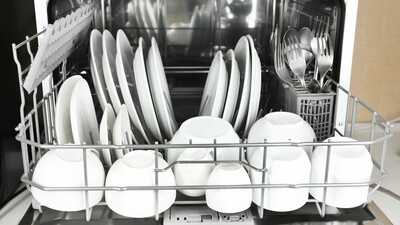| Home | About | Archives | RSS Feed |

The Retired Investor: The Dishwasher Debates
 |
In most new homes there is a litany of appliances that buyers almost automatically purchase, one of which is the dishwasher. While ovens, refrigerators, washers, and dryers are used almost daily, the dishwasher is among the least-used appliances in American homes.
The global dishwasher market is well over $7 billion and projected to grow by 7.5 percent to $10 billion by 2025. Much of that future growth is due to smaller-sized food service organizations. This list includes companies, businesses, institutions, and organizations that prepare meals and serve them to consumers and other customers. Of course, restaurants, cafeterias, hotels, and catering businesses are included in this demand base.
On the consumer side, busier lifestyles, increased employment, especially among women, and the expansion of nuclear families in both the developed and developing world have contributed to dishwasher demand. The increased convenience of shopping, thanks to the internet, has also made the purchase of most household "white goods" easier and faster. The COVID-19 pandemic disrupted supply lines, reduced travel, and increased prices for most home appliances, including dishwashers. However, these issues are beginning to lessen.
Dishwashers go back a long way. The first mechanical dishwasher was patented in the U.S. in 1850. It was made of wood and cranked by hand. Other machines improved the first, but few were commercially viable.
It required the widespread use of indoor plumbing and running water in the home before dishwashers could be considered as a viable household appliance. The postwar boom of the 1950s saw some of the wealthier households purchase such machines, but it wasn't until the 1970s that dishwashers became commonplace in both the U.S. and Europe. By 2012, more than 75 percent of homes on both sides of the pond had dishwashers.
However, unlike other kitchen appliances like the refrigerator or the electric stove, the dishwasher has not proven to be indispensable. Today, more than 89 million American homes have a dishwasher, according to the U.S. Energy Information Administration, but almost 20 percent (nearly one in five), fail to use it.
A breakdown of weekly dishwasher use statistics reveals that about 4 in 10 households don't use theirs in a given week, and just 11 percent of Americans use it once a week. Only 11 percent use it daily. In our own household, I would guess we run the dishwasher every other day between the two of us.
The reasons for its scant use are varied. There will always be a segment of the population that simply distrusts technology of any sort. Then there are those, usually older folk, that grew up washing dishes by hand. They don't see a reason to start letting some automated contraptions do what a little elbow grease can do better, and in a shorter time period.
Recently, climate change and the resulting worldwide drought has added another reason for not using the dishwasher. The growing recognition of water scarcity and the estimated lack of access to safe water for an estimated 771 million people worldwide, according to Water.org, has influenced even more people to use their dishwasher sparingly. All in the name of wasting less water.
That is a mistake. The Environmental Protection Agency says Energy Star dishwashers use nearly 5,000 gallons less water per year, compared to those who wash dishes by hand. This has not escaped the attention of companies that produce or sell products that require water to work. Proctor & Gamble, for example, the maker of the dishwasher detergent, Cascade, has argued and promoted the idea of "rethinking the sink." The company argues that skipping the pre-rinsing of dishes and instead running the dishwater daily will save you gallons of water. Another detergent brand, Finish, sold by consumer products company Reckitt, is urging consumers to "skip the rinse" as well.
This summer, our area (Berkshire County) is under certain restrictions to conserve water. I confess that my wife and I are in the habit of pre-rinsing dishes before putting them in the dishwasher. My thoroughly modern daughter, who uses her dishwasher daily, simply shakes her head at this practice. She says it in not only redundant but wastes water. I promise to stop that practice, and at the same time, up our use of the dishwasher further. What about you?
Bill Schmick is the founding partner of Onota Partners, Inc., in the Berkshires. His forecasts and opinions are purely his own and do not necessarily represent the views of Onota Partners Inc. (OPI). None of his commentary is or should be considered investment advice. Direct your inquiries to Bill at 1-413-347-2401 or email him at bill@schmicksretiredinvestor.com.

